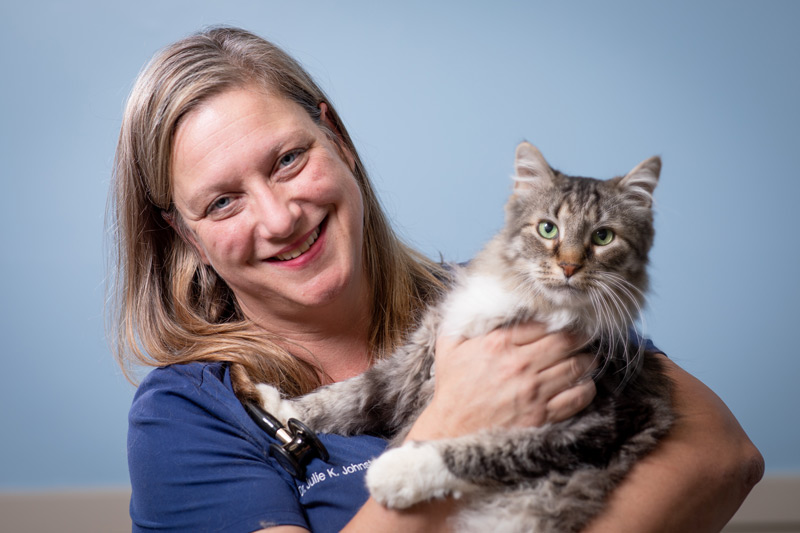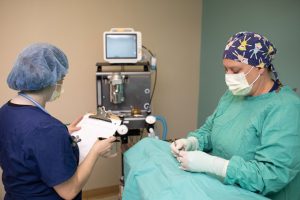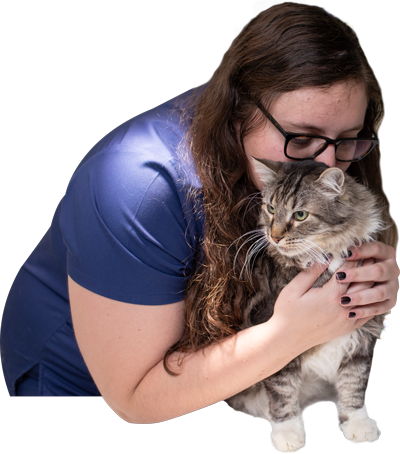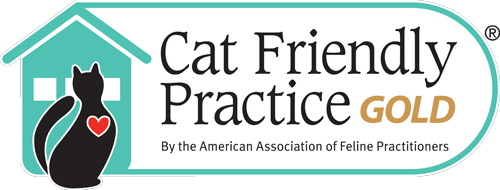Hello, fellow cat enthusiasts and dedicated pet owners! I’m Dr. Julie Johnston, a veterinarian with over 10 years of experience caring for our feline companions. I am the owner of The Cat Hospital of Tucson, a cat-only veterinarian establishment dedicated to providing the absolute best care your feline friends can get. In this comprehensive guide, I’ll share my insights and expertise on how to provide the best preventative care for your beloved cats. From regular veterinary check-ups to nutrition, grooming, dental care, parasite control, exercise, and more, let’s explore each aspect of preventative feline care to ensure your cats enjoy long, healthy, and happy lives.
The Importance of Preventative Feline Care
Preventative feline care is a holistic approach to maintaining your cat’s well-being. It’s not just about treating illnesses when they arise; it’s about taking proactive measures to prevent those illnesses from occurring in the first place. It is also about early detection of chronic disease in order to prevent a major expensive medical illness. As a veterinarian, I believe that the best way to ensure a long and vibrant life for your cat is by investing in preventative care and early detection of disease. It’s a partnership between you, the dedicated pet owner, and me, your trusted veterinarian.
What This Guide Covers
In this guide, we’ll delve into the essential aspects of preventative feline care. Together, we will explore each facet of your cat’s health and well-being, providing you with a deep understanding of how to care for your furry family members. From regular check-ups to vaccinations, nutrition, grooming, dental care, parasite control, exercise, and mental stimulation, we will leave no stone unturned in our mission to provide the best possible care for your feline companions.
The Importance of Regular Check-Ups
Regular veterinary check-ups are the foundation of preventative feline care. These visits are more than just a formality; they are the cornerstone of your cat’s health. During these appointments, I can assess your cat’s overall well-being, catch potential issues early, and provide timely interventions. These check-ups are crucial in ensuring your cat’s longevity and quality of life.
Recommended Frequency of Visits
The recommended frequency of veterinary visits depends on various factors, including your cat’s age and health status. For kittens, frequent visits are essential to monitor their growth and development. Adult cats benefit from annual check-ups, while senior cats, typically aged 7 years or older, should have bi-annual visits. As cats age, they become more susceptible to age-related health concerns, making regular visits even more critical.
What to Expect During a Check-up
During a typical veterinary check-up, I will conduct a thorough examination, including assessing your cat’s weight, temperature, and vital signs. This examination helps me identify any changes in your cat’s health that may require attention. I’ll also administer necessary vaccinations and discuss your cat’s medical history, behavior, diet, and lifestyle. Additionally, I’ll provide guidance on preventative measures, such as parasite control and dental care, tailored to your cat’s specific needs.
Vaccinations
Explanation of Common Cat Vaccinations
Vaccinations are a vital component of preventative feline care. These vaccines protect your cat against a range of infectious diseases. The core vaccines for most cats include the Feline Distemper (FVRCP) vaccine, which guards against feline panleukopenia, calicivirus, and rhinotracheitis (herpes), and the rabies vaccine, which protects against this fatal disease. For outdoor or at-risk cats, the Feline Leukemia (FeLV) vaccine is also recommended.
Importance of Keeping Vaccinations Up-to-date
Vaccinations provide crucial immunity against potentially life-threatening diseases. To ensure your cat remains protected, it’s essential to adhere to the recommended vaccination schedule. I will work closely with you to determine the appropriate vaccinations based on your cat’s lifestyle and exposure risks. Keeping vaccinations up-to-date is a responsible and loving way to safeguard your cat’s health.
Discussing Potential Risks or Side Effects
While vaccinations are generally safe, some cats may experience mild side effects, such as temporary lethargy or discomfort. Severe reactions are rare, but if you notice any concerning symptoms following vaccination, please don’t hesitate to reach out to me. Your cat’s well-being is my top priority, and I’m here to address any concerns you may have.
Bloodwork and Urinalysis
The Role of Routine Screening Labs
Cats hide illnesses well. Once symptoms occur chronic disease like kidney failure, diabetes mellitus, hypertension, hyperthyroidism the damage may already be done and intervention is costly. I recommend annual labs even for my younger patients. Having these labs allows me to watch trends and detect disease early for easier intervention and management.
What Labs and When?
Annual labs for all cats is highly recommended. However, I recommend labs be run every other year at a minimum for cats under age seven. Once over age seven annual labs are a must, along with a six-month check up, as this is when the chronic illnesses of older cats develop. In addition, annual blood pressure checks should be done once the patient is over seven as hypertension is a silent but damaging problem for many older cats.
Nutrition
The Role of a Balanced Diet in Cat Health
Balanced nutrition is the bedrock of your cat’s health, and it’s a subject I hold dear to my heart. A well-rounded diet provides the essential nutrients needed for growth, energy, and a robust immune system. It also contributes to a glossy coat, healthy skin, and overall vitality. As a veterinarian, I can help you make informed choices about your cat’s diet.
How to Choose the Right Cat Food
Selecting the right cat food can be a daunting task, given the vast array of options available. To make an informed choice, it’s essential to read labels carefully. Examine ingredient lists and nutritional information to ensure that the food aligns with your cat’s specific dietary needs. Additionally, consider incorporating wet food into your cat’s diet for increased hydration, especially if they primarily consume dry kibble.
Tips for Feeding and Portion Control
Maintaining a healthy weight is crucial for your cat’s overall well-being. Overfeeding can lead to obesity, which is associated with various health problems like diabetes. To prevent this, practice portion control by measuring your cat’s food and establishing a consistent feeding schedule. Regularly monitor your cat’s weight, and if you notice significant changes, consult with me. I can provide guidance on adjusting your cat’s diet and exercise routine as needed.
Hygiene and Grooming
The Importance of Grooming
Grooming is more than just maintaining your cat’s appearance; it’s a vital aspect of their health and comfort. Proper grooming helps prevent matting, reduces shedding, and allows for the early detection of potential skin issues or abnormalities. As a veterinarian, I encourage you to prioritize grooming in your cat’s care routine.
Grooming Routine
Establishing a regular grooming routine is key to your cat’s well-being. For long-haired breeds, regular brushing is essential to prevent matting and reduce shedding. While most cats are proficient self-groomers, some may require occasional baths. Additionally, keeping your cat’s nails trimmed helps prevent overgrowth and discomfort.
Signs of Skin and Coat Problems
During grooming sessions, pay close attention to your cat’s skin and coat. Look for signs of fleas, ticks, allergies, or any abnormalities. If you notice anything unusual, please reach out to me for guidance. Early detection and intervention can prevent minor issues from becoming more significant health concerns.
Dental Care
The Significance of Dental Health
Cat oral hygiene often goes overlooked, but it plays a critical role in your cat’s overall health. Dental problems can lead to pain, difficulty eating, and systemic health issues. Bacteria from the mouth can travel to the heart and kidneys causing long term damage. Routine dental care is essential to ensure your cat’s comfort and well-being.
Tips for At-home Dental Care
Maintaining your cat’s dental health begins at home. I recommend regular brushing using a pet-specific toothbrush and toothpaste. Start gradually and make it a positive experience for your cat. You can also provide dental treats and toys designed to promote oral health. Periodically inspect your cat’s teeth and gums for signs of dental problems, such as tartar buildup or redness.
Importance of Professional Dental Cleanings
While at-home care is beneficial, routine dental cleanings by me, your veterinarian, are essential. These cleanings allow for a thorough examination and cleaning of your cat’s teeth, addressing any dental issues that may require treatment. Regular professional dental care is a proactive step in preventing dental problems.
Parasite Control
Discussion of Common Cat Parasites (Fleas, Ticks, Worms)
As a veterinarian, I’m acutely aware of the health risks posed by parasites. It’s crucial for you, the pet owner, to be informed about the following common cat parasites:
- Fleas and Ticks: These external parasites can cause discomfort and transmit diseases.
- Intestinal Worms: Various types of worms, such as roundworms, tapeworms, and hookworms, can affect your cat’s gastrointestinal health.
- Heartworm: This mosquito borne parasitic infection is on the rise. Once contracted there is no cure for cats.
Preventative Measures (Flea/Tick Prevention, Deworming)
Preventing parasites from becoming a problem is an essential aspect of your cat’s health. You can take proactive steps to achieve this goal:
- Flea and Tick Prevention: Use veterinarian-recommended topical treatments, collars, or oral medications to protect your cat from these external parasites.
- Deworming: Administer deworming treatments as advised by me, your veterinarian, especially for outdoor cats or those with a history of hunting.
Signs of Parasitic Infestations
Vigilance is crucial when it comes to parasitic infestations. Early detection is key to effective treatment. Be on the lookout for signs such as excessive itching or scratching, changes in appetite, weight loss, or abnormal bowel movements. If you observe any of these signs, please don’t hesitate to contact me for appropriate treatment.If you have any questions or concerns about your cat’s health or well-being, whether it’s related to preventative care, specific health issues, or any other aspect of feline healthcare, please don’t hesitate to reach out to us at The Cat Hospital of Tucson. Our dedicated team of veterinarians and staff is here to provide you and your feline companion with the best care and guidance. Your cat’s health is our top priority, and we’re just a phone call away to address any inquiries or schedule a visit. Contact Us today, and together, we’ll ensure that your beloved cat enjoys a lifetime of happiness and good health.











